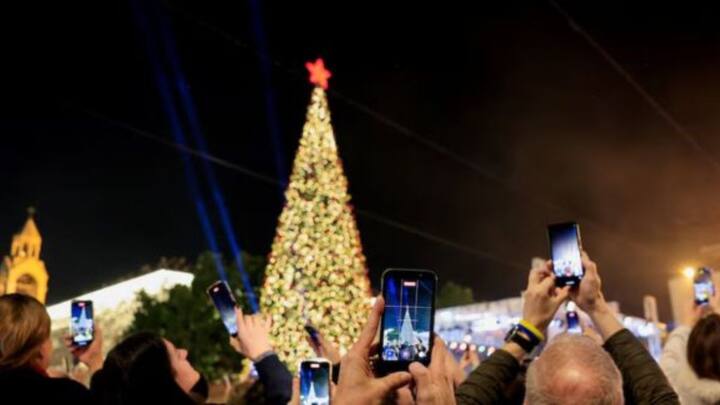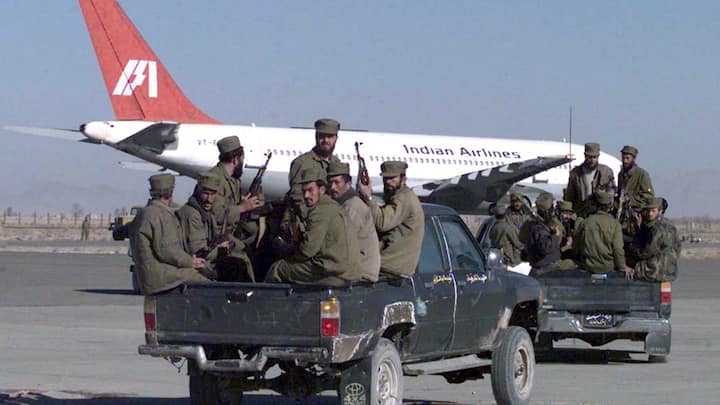Today in History
Recent Highlights
All Stories for Today in History

History Today: When Benazir Bhutto was assassinated in Pakistan
Fp Explainers •On December 27, 2007, Benazir Bhutto, a former Pakistani prime minister and the country’s first democratically elected woman leader, was assassinated at an election rally in Rawalpindi. Her death plunged Pakistan into grief and chaos. Also, on this day, the International Monetary Fund (IMF) was formally established in 1945

History Today: How the Indian Ocean tsunami wiped out communities from the world map
Fp Explainers •One of the worst natural disasters took place on December 26, 2004 following one of the strongest earthquakes in the oceans. As many as 2.3 lakh people were killed across 14 countries. On this day in 2012, China opened the world’s longest high-speed rail route between Beijing and Guangzhou

History Today: How December 25 became Christmas
Fp Explainers •On December 25, Christians around the world gather to celebrate Jesus’ birth, as many believe. With joyful carols, special liturgies and festive foods, it's considered an important cultural event. But, how did December 25 come to be associated with Jesus’ birthday? We take you through the history behind the date

History Today: How 5 men hijacked Indian Airlines flight 814
Fp Explainers •India faced one of its most serious security lapses on December 24, 1999, when hijackers took control of Indian Airlines flight 814. The flight travelling from Kathmandu to Delhi, with 191 people onboard, faced a harrowing experience when it was taken to Kandahar instead of its usual destination. On this day in 1979, the Soviet Union invaded Afghanistan under the pretext of upholding the Soviet-Afghan Friendship Treaty of 1978

History Today: When Vincent Van Gogh cut off his left ear
Fp Explainers •On December 23, 1888, Dutch painter Vincent van Gogh cut off his left ear with a razor after an altercation with his friend Paul Gauguin. None of it stopped Van Gogh from creating iconic works like Starry Night and Sunflowers. It's also on this day that American physician Joseph Edward Murray performed the first successful human kidney transplantation. Murray received the 1990 Nobel Prize for his work on organ transplantation

History Today: When the Christmas tree was decorated with electric lights for the first time
Fp Explainers •The coniferous tree, a charming part of Christmas, was lit up with candles for years. These posed a hazard as they could catch fire, turning the holiday into a tragedy for many people. On December 22, 1882, the Christmas tree was decorated with electric lights for the first time, changing holiday traditions forever

History Today: When Pan Am Flight 103 exploded over a Scottish town, killing over 250
Fp Explainers •On December 21, 1988, Pan Am Flight 103, a Boeing 747 from London’s Heathrow airport to New York, exploded midair over the small town of Lockerbie, Scotland. The explosion caused by a bombing killed all 243 passengers and 16 crew members aboard, as well as 11 Lockerbie residents on the ground

History Today: How Zulfikar Ali Bhutto took charge of Pakistan after losing 1971 war
Fp Explainers •Zulfikar Ali Bhutto took the reins of Pakistan into his control on December 20, 1971, following the country's devastating defeat in the Bangladesh Liberation War. While Pakistan was struggling with its economy and low morale, Bhutto presented himself as a leader capable of rebuilding the country. On this day in 1957, the King of Rock 'n Roll, Elvis Presley, was drafted into the US Army

History Today: How America formally banned slavery 160 years ago
Fp Explainers •On December 18, 1865, America abolished slavery, as it adopted the 13th Amendment into the constitution. The decision came 246 years after the first shipload of captive Africans was brought to Virginia. On this day in 1941, Japanese forces invaded Hong Kong Island during World War II

History Today: When Pakistani Taliban attacked a Peshwar school killing 132 children
Fp Explainers •The world watched in horror when seven Pakistani Taliban gunmen opened fire inside the Army Public School in Peshawar on December 16, 2014. Nearly 149 people lost their lives, including 132 school children. The Boston Tea Party, which was one of the earliest events leading to the American Revolution, took place on this day in 1773



